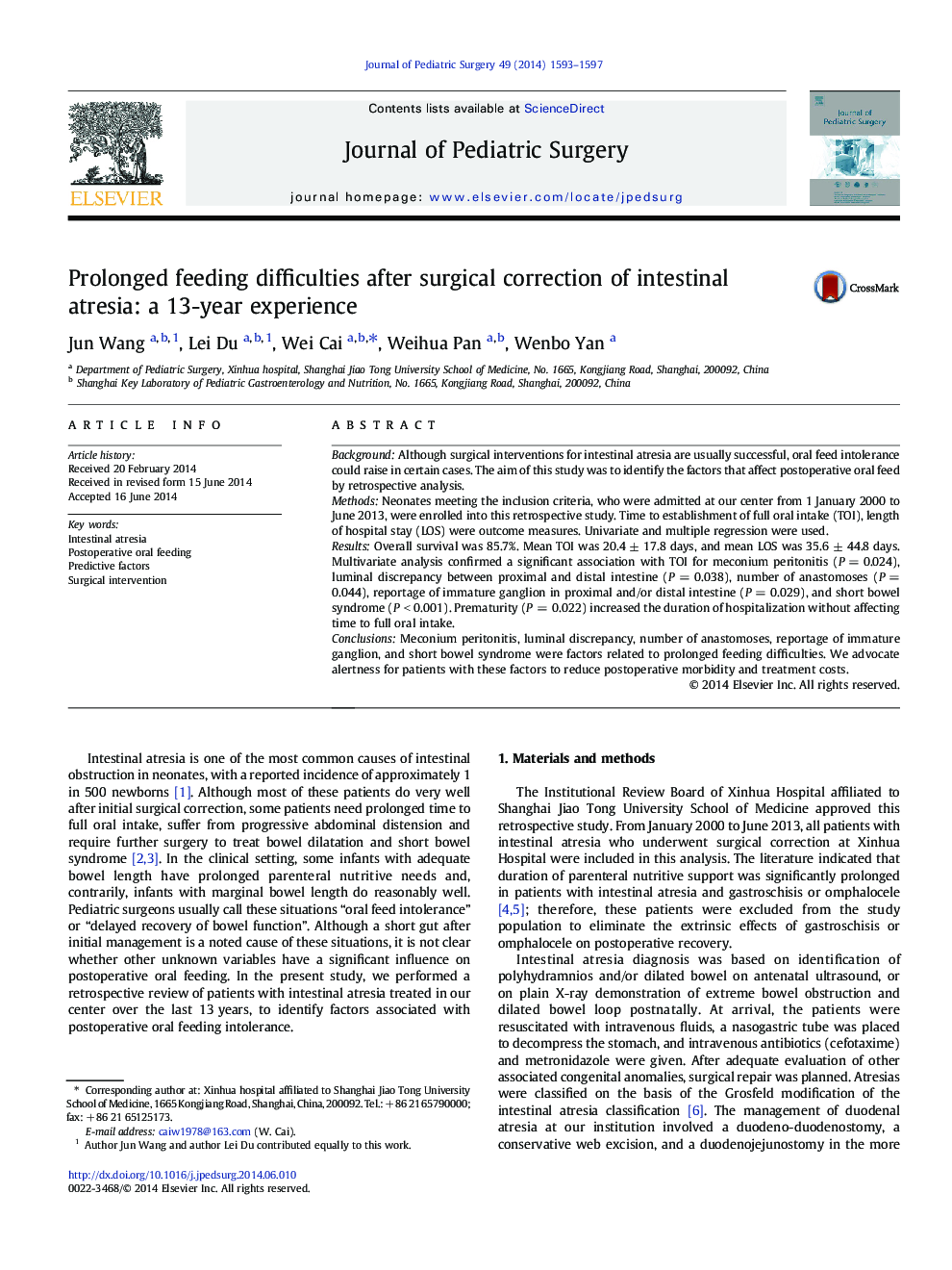| Article ID | Journal | Published Year | Pages | File Type |
|---|---|---|---|---|
| 4155348 | Journal of Pediatric Surgery | 2014 | 5 Pages |
BackgroundAlthough surgical interventions for intestinal atresia are usually successful, oral feed intolerance could raise in certain cases. The aim of this study was to identify the factors that affect postoperative oral feed by retrospective analysis.MethodsNeonates meeting the inclusion criteria, who were admitted at our center from 1 January 2000 to June 2013, were enrolled into this retrospective study. Time to establishment of full oral intake (TOI), length of hospital stay (LOS) were outcome measures. Univariate and multiple regression were used.ResultsOverall survival was 85.7%. Mean TOI was 20.4 ± 17.8 days, and mean LOS was 35.6 ± 44.8 days. Multivariate analysis confirmed a significant association with TOI for meconium peritonitis (P = 0.024), luminal discrepancy between proximal and distal intestine (P = 0.038), number of anastomoses (P = 0.044), reportage of immature ganglion in proximal and/or distal intestine (P = 0.029), and short bowel syndrome (P < 0.001). Prematurity (P = 0.022) increased the duration of hospitalization without affecting time to full oral intake.ConclusionsMeconium peritonitis, luminal discrepancy, number of anastomoses, reportage of immature ganglion, and short bowel syndrome were factors related to prolonged feeding difficulties. We advocate alertness for patients with these factors to reduce postoperative morbidity and treatment costs.
